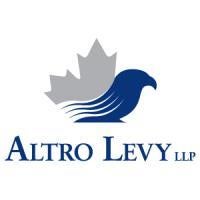Canadians are still running to the US in hopes of yielding a higher rate of return by investing their hard earned money across the border. Many of these investments include US real estate, whether it is a multitude of rental properties, one for personal use by the family or simply for retirement. No matter what your reason for wanting to get involved in the US real estate market the same question is always asked, how should you hold title to this US property?
Piecing Together all the Right Information
Most Canadians will do a fair amount of research before jumping into the US market, or speak with professionals regarding their upcoming venture. However, the issue is finding the correct information that is applicable to your specific needs. The Internet is great, but let’s not fool ourselves into thinking that everything we read is correct. In fact, most of us understand that we need to be careful with what we find on the Internet, which is why we spend so much time finding different sources of information. The trouble is that with all these different sources we tend to be faced with conflicting opinions and no clear path to follow. Additionally, when seeking professional advice the same problem can arise. Professionals here in Canada typically are not familiar with the rules in place on the other side of the border, and vise versa with respect to the professionals in the US. All too often, when meeting with new clients who have spent time doing their own research or who have sought out professional advice from a lawyer or accountant in the US, the client has the understanding that a US Limited Liability Company (“LLC”) is best suited for owning US real estate. The rest of this article will attempt to address the many issues in doing so.
What is an LLC?
Before we go too far we must first address a very important question, what is an LLC? An LLC is best described as a cross between a corporation and a partnership, but truly does not fall into either category. The limited liability nature of an LLC is something most Canadians are familiar with, as it equates to the limited liability that extends to the shareholders of a corporation. With an LLC however, this limited liability extends to its members. What is most interesting about LLCs in the US is that you can choose how they are taxed. For example, if you are the sole member of the LLC it can be treated as a flow through entity on the US side and thus have any income taxed directly in your hands as the member. Where you have multiple members an election can be made to treat the LLC as a partnership, which essentially has the same consequences as a single member LLC but with the income being allocated to each member in the proportion of their interest, or pursuant to the membership agreement. In both these scenarios the benefit is that the member will get to take advantage of their low personal tax rates in the US. It is important to note that not all states allow an LLC to be treated as a flow through entity, however most do. The third option is to simply treat the LLC as a corporation. How the LLC is taxed in the US is the spawn of many issues for Canadians, as the LLC cannot act as flow through entity here on the Canadian side.
Typically, an LLC is used as a flow through entity and benefits from the low personal tax rates while also preserving the creditor protection of corporations. Using the LLC as a flow through creates only one level of tax where corporations typically carry a larger tax burden. In a corporation, first the corporation itself is taxed on its income, then the after tax proceeds must make its way up to you as the shareholder, by way of a dividend, which is then taxed again in your hands as income.
Canada’s View of LLC’s
Back in Canada we do not have LLCs, nor do we have anything similar. Here we only have one type of corporation, which is taxed as a corporation, meaning two levels of tax. We do not have the option to elect that the income flow directly to the shareholder, thus the treatment of LLCs in Canada is the same as a corporation as no election can be made to treat it as a flow through when declaring to the Canadian Revenue Agency (“CRA”).
If we were to piece all this information together what do you, as a Canadian resident, get if you own a US property directly through an LLC. First any income will be taxed in your hands directly by the Internal Revenue Service (“IRS”), as you would elect to treat the LLC as a flow through entity on the US side in order to benefit from the low personal tax rates. However, as a Canadian resident you also have the obligation to declare any US income back here in Canada to the CRA. As we have seen, when declaring that income back here in Canada the CRA will treat the LLC as a corporation and tax it as a separate entity. This creates the dreaded double taxation, as the tax that you paid to the IRS can no longer be applied as a foreign tax credit here in Canada under the Canada-US tax treaty.
Some of you may be reading this and saying, “I won’t have any income because this is a personal use property, so what’s the problem?” The problem is that down the road you will hopefully sell this property and have a nice capital gain, which would now be subject to the same filing requirements and once again expose you to double taxation on that respective gain. Secondly, since the CRA treats LLCs as a non-resident corporation owning a personal use property could bring forth another nasty Canadian tax issue such as the shareholder benefit rule. Here, the CRA can take the position that you are simply a shareholder of this nonresident corporation and since you are making use of its property you are receiving a benefit from such corporation. This benefit is thus taxed in your hands here in Canada as income based on the fair market rental value of the property, even though no money ever made its way into your hands.
Additionally, if you currently own property, in most cases, you cannot roll that property into an LLC on a tax deferred basis here in Canada. Although the rollover would apply in the US it would be a deemed disposition in the eyes of the CRA. There are also many other issues one needs to be aware of when using LLCs, such as the potential application of Foreign Accrual Property Income rules or the fact that LLCs do nothing in terms of protecting you from US estate tax when you pass away.
The end result is the same no matter what your reason for wanting to use an LLC, be careful. In some cases LLCs can be used to your advantage but be sure to fully understand their ramifications before getting in too deep. As always it is important to seek professional advice from someone who understands the rules on both the Canadian and US side.




 i
i

